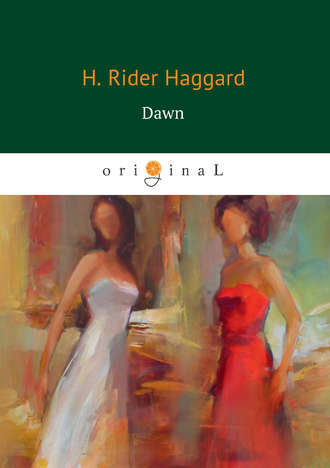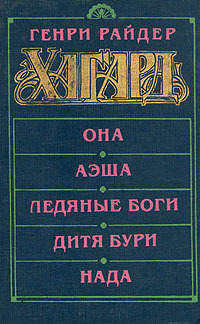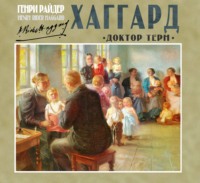
Полная версия
Dawn
There are many such men, probably you, my reader, know one or two. With infinite labour they store up honey from the fields of knowledge, collect endless data from the statistics of science, pile up their calculations against the very stars; and all to no end. As a rule, they do not write books; they gather the learning for the learning’s sake, and for the very love of it rejoice to count their labour lost. And thus they go on from year to year, until the golden bowl is broken and the pitcher broken at the fountain, and the gathered knowledge sinks, or appears to sink, back to whence it came. Alas, that one generation cannot hand on its wisdom and experience—more especially its experience—to another in its perfect form! If it could, we men should soon become as gods.
It was a mild evening in the latter end of October when Mr. Fraser started on his walk. The moon was up in the heavens as he, an hour later, made his way from the side of the lake, where he had been wandering, back to the churchyard through which he had to pass to reach the vicarage. Just before he came to the gate, however, he was surprised, in such a solitary spot, to see a slight figure leaning against the wall opposite the place where lay the mortal remains of the old squire and his daughter-in-law, Hilda. He stood still and watched; the figure appeared to be gazing steadily at the graves. Presently it turned and saw him, and he recognized the great grey eyes and golden hair of little Angela Caresfoot.
"Angela, my dear, what are you doing here at this time of night?” he asked, in some surprise.
She blushed a little as she shook hands rather awkwardly with him.
"Don’t be angry with me,” she said in a deprecatory voice; "but I was so lonely this evening that I came here for company.”
"Came here for company! What do you mean?”
She hung her head.
"Come,” he said, "tell me what you mean.”
"I don’t quite know myself. How can I tell you?”
He looked more puzzled than ever, and she observed it and went on:
"I will try to tell you, but you must not be cross like Pigott when she cannot understand me. Sometimes I feel ever so much alone, as though I was looking for something and could not find it, and then I come and stand here and look at my mother’s grave, and I get company and am not lonely any more. That is all I know; I cannot tell you any more. Do you think me silly? Pigott does.”
"I think you are a very strange child. Are you not afraid to come here alone at night?”
"Afraid—oh, no! Nobody comes here; the people in the village dare not come here after dark, because they say that the ruins are full of spirits. Jakes told me that. But I must be stupid; I cannot see them, and I want so very much to see them. I hope it is not wrong, but I told my father so the other day, and he turned white and was angry with Pigott for giving me such ideas; but you know Pigott did not give them to me at all. I am not afraid to come; I like it, it is so quiet, and, if one listens enough in the quiet, I always think one may hear something that other people do not hear.”
"Do you hear anything, then?”
"Yes, I hear things, but I cannot understand them. Listen to the wind in the branches of that tree, the chestnut, off which the leaf is falling now. It says something, if only I could catch it.”
"Yes, child, yes, you are right in a way; all Nature tells the same eternal tale, if our ears were not stopped to its voices,” he answered, with a sigh; indeed, the child’s talk had struck a vein of thought familiar to his own mind, and, what is more, it deeply interested him; there was a quaint, far-off wisdom in it.
"It is pleasant to-night, is it not, Mr. Fraser?” said the little maid, "though everything is dying. The things die softly without any pain this year; last year they were all killed in the rain and wind. Look at that cloud floating across the moon, is it not beautiful? I wonder what it is the shadow of; I think all the clouds are shadows of something up in heaven.”
"And when there are no clouds?”
"Oh! then heaven is quite still and happy.”
"But heaven is always happy.”
"Is it? I don’t understand how it can be always happy if we go there. There must be so many to be sorry for.”
Mr. Fraser mused a little; that last remark was difficult to answer. He looked at the fleecy cloud, and, falling into her humour, said—
"I think your cloud is the shadow of an eagle carrying a lamb to its little ones.”
"And I think,” she answered confidently, "that it is the shadow of an angel carrying a baby home.”
Again he was silenced; the idea was infinitely more poetical than his own.
"This,” he reflected, "is a child of a curious mental calibre.”
Before he could pursue the thought further, she broke in upon it in quite a different strain.
"Have you seen Jack and Jill? They are jolly.”
"Who are Jack and Jill?”
"Why, my ravens, of course. I got them out of the old tree with a hole in it at the end of the lake.”
"The tree at the end of the lake! Why, the hole where the ravens nest is fifty feet up. Who got them for you?”
"I got them myself. Sam—you know Sam—was afraid to go up. He said he should fall, and that the old birds would peck his eyes. So I went by myself one morning quite early, with a bag tied round my neck, and got up. It was hard work, and I nearly tumbled once; but I got on the bough beneath the hole at last. It shook very much; it is so rotten, you have no idea. There were three little ones in the nest, all with great mouths. I took two, and left one for the old birds. When I was nearly down again, the old birds found me out, and flew at me, and beat my head with their wings, and pecked—oh, they did peck! Look here,” and she showed him a scar on her hand; "that’s where they pecked. But I stuck to my bag, and got down at last, and I’m glad I did, for we are great friends now; and I am sure the cross old birds would be quite pleased if they knew how nicely I am educating their young ones, and how their manners have improved. But I say, Mr. Fraser, don’t tell Pigott; she cannot climb trees, and does not like to see me do it. She does not know I went after them myself.”
Mr. Fraser laughed.
"I won’t tell her, Angela, my dear; but you must be careful—you might tumble and kill yourself.”
"I don’t think I shall, Mr. Fraser, unless I am meant to. God looks after me as much when I am up a tree as when I am upon the ground.”
Once more he had nothing to say; he could not venture to disturb her faith.
"I will walk home with you, my dear. Tell me. Angela, would you like to learn?”
"Learn!—learn what?”
"Books, and the languages that other nations, nations that have passed away, used to talk, and how to calculate numbers and distances.”
"Yes, I should like to learn very much; but who will teach me? I have learnt all Pigott knows two years ago, and since then I have been trying to learn about the trees and flowers and stars; but I look and watch, and can’t understand.”
"Ah! my dear, contact with Nature is the highest education; but the mind that would appreciate her wonders must have a foundation of knowledge to work upon. The uneducated man is rarely sensitive to the thousand beauties and marvels of the fields around him, and the skies above him. But, if you like, I will teach you, Angela. I am practically an idle man, and it will give me great pleasure; but you must promise to work and do what I tell you.”
"Oh, how good you are! Of course I will work. When am I to begin?”
"I don’t know—to-morrow, if you like; but I must speak to your father first.”
Her face fell a little at the mention of her father’s name, but presently she said, quietly—
"My father, he will not care if I learn or not. I hardly ever see my father; he does not like me. I see nobody but Pigott and you and old Jakes, and Sam sometimes. You need not ask my father; he will never miss me whilst I am learning. Ask Pigott.”
At that moment Pigott herself hove into view, in a great flurry.
"Oh, here you are, Miss Angela! Where have you been to, you naughty girl? At some of your star-gazing tricks again, I’ll be bound, frightening the life out of a body. It’s just too bad of you, Miss Angela.”
The little girl looked at her with a peculiarly winning smile, and took her very solid hand between her own tiny palms.
"Don’t be cross, Pigott, dear,” she said. "I didn’t mean to frighten you. I couldn’t help going—I couldn’t indeed; and then I stopped talking to Mr. Fraser.”
"There, there, I should just like to know who can be cross with you when you put on those ways. Are your feet wet? Ah! I thought so. Run on in and take them off.”
"Won’t that be just a little difficult?” and she was gone with a merry laugh.
"There, sir, that’s just like her, catching a body up like and twisting what she says, till you don’t know which is head and which is heels. I’ll be bound you found her down yonder;” and she nodded towards the churchyard.
"Yes.”
Pigott drew a little nearer, and spoke in a low voice.
"‘Tis my belief, sir, that that child sees things; she is just the oddest child I ever saw. There’s nothing she likes better than to slip out of a night, and to go to that there beastly churchyard, saving your presence, for ‘company,’ as she calls it—nice sort of company, indeed. And it is just the same way with storms. You remember that dreadful gale a month ago, the one that took down the North Grove and blew the spire off Rewtham Church. Well, just when it was at its worst, and I was a-sitting and praying that the roof might keep over our heads, I look round for Angela, and can’t see her. ‘Some of your tricks again,’ thinks I to myself; and just then up comes Mrs. Jakes to say that Sam had seen little missy creeping down the tunnel walk. I was that scared that I ran down, got hold of Sam, for Jakes said he wouldn’t go out with all them trees a-flying about in the air like straws—no, not for a thousand pounds, and off we set after her.” Here Pigott paused to groan at the recollection of that walk.
"Well,” said Mr. Fraser, who was rather interested—everything about this queer child interested him; "where did you find her?”
"Well, sir, you know where the old wall runs out into the water, before Caresfoot’s Staff there? Well, at the end of it there’s a post sunk in, with a ring in it to tie boats to. Now, would you believe it? out there at the end of the wall, and tied to the ring by a scarf passed round her middle, was that dreadful child. She was standing there, her back against the post, right in the teeth of the gale, with the spray dashing over her, her arms stretched out before her, her hat gone, her long hair standing out behind straight as an iron bar, and her eyes flashing as though they were on fire, and all the while there were the great trees crashing down all round in a way enough to make a body sick with fright. We got her back safe, thank God; but how long we shall keep her, I’m sure I don’t know. Now she is drowning herself in the lake, for she takes to the water like a duck, and now breaking her neck off trees, and now going to ghosts in the churchyard for company. It’s wearing me to the bone —that’s what it is.”
Mr. Fraser smiled, for, to tell the truth, Pigott’s bones were pretty comfortably covered.
"Come,” he said, "you would not part with her for all her wicked deeds, would you?”
"Part with her,” answered Pigott, in hot indignation, "part with my little beauty? I would rather part with my head. The love, there never was another like her, nor never will be, with her sweet ways; and, if I know anything about girls, she’ll be the beauty of England, she will. She’s made for a beautiful woman; and look at them eyes and forehead and hair—where did you ever see the like? And, as for her queer ways, what can you expect from a child as has got a great empty mind and nothing to put in it, and no one to talk to but a common woman like me, and a father”—here she dropped her voice—”as is a miser, and hates the sight of his own flesh and blood?”
"Hush! you should not say such things, Pigott! Now I will tell you something; I am going on to ask your master to allow me to educate Angela.”
"I’m right glad to hear it, sir. She’s sharp enough to learn anything, and it’s kind of you to teach her. If you can make her mind like what her body will be if she lives, somebody will be a lucky man one of these days. Good- night, sir, and many thanks for bringing missy home.”
Next day Angela began her education.
Chapter XVI
Reader, we are about to see Angela again, and to see a good deal of her; but you must be prepared for a change in her personal appearance, for the curtain has been down for ten years since last you met the child whose odd propensities excited Pigott’s wonder and indignation and Mr. Fraser’s interest; and ten years, as we all know, can work many changes in the history of the world and individuals. In ten years some have been swept clean off the board, and their places taken by others; a few have grown richer, many poorer, some of us sadder, some wiser, and all of us ten years older. Now, this was exactly what had happened to little Angela—that is, the Angela we knew as little, and ten years make curious differences between the slim child of nine and a half and the woman of nearly twenty.
When we last saw her, Angela was about to commence her education. Let us re-introduce ourselves on the memorable evening when, after ten years of study, Mr. Fraser, a master by no means easily pleased, expressed himself unable to teach her any more.
It is Christmas Eve. Drip, drop, drip, falls the rain from the leafless boughs on to the sodden earth. The apology for daylight that has been doing its dull duty for the last few hours is slowly effacing itself, and the gale is celebrating the fact, and showing its joy at the closing-in of the melancholy night by howling its loudest through the trees, and flogging the flying scud it has brought with it from the sea, till it whirls across the sky like a succession of ghostly racehorses.
This is outside the vicarage; let us look within. In a well-worn arm- chair in the comfortable study, near to a table covered with books and holding some loose sheets of foolscap in his hand, sits Mr. Fraser. His hair is a little greyer than when he began Angela’s education, about as grey as rather accommodating hair will get at the age of fifty-three; otherwise his general appearance is much the same, and his face as refined and gentlemanlike as ever. Presently he lays down the sheets of paper which he has been studying attentively, and says:
"Your solution is perfectly sound, Angela; but you have arrived at it in a characteristic fashion, and by your own road. Not but what your method has some merits—for one thing, it is more concise than my own; but, on the other hand, it shows a feminine weakness. It is not possible to follow every step from your premises to your conclusion, correct as it is.”
"Ah!” says a low voice, with a happy ripple in it, the owner of which is busy with some tea-things out of range of the ring of light thrown by the double reading-lamp, "you often blame me for jumping to conclusions; but what does it matter, provided they are right? The whole secret is that I used the equivalent algebraic formula, but suppressed the working in order to puzzle you,” and the voice laughed sweetly.
"That is not worthy of a mathematician,” said Mr. Fraser, with some irritation; "it is nothing but a trick, a tour de force.”
"The solution is correct, you say?”
"Quite.”
"Then I maintain that it is perfectly mathematical; the object of mathematics is to arrive at the truth.”
"Vox et preterea nihil. Come out of that corner, my dear. I hate arguing with a person I cannot see. But there, there, what is the use of arguing at all? The fact is, Angela, you are a first-class mathematician, and I am only second-class. I am obliged to stick to the old tracks; you cut a Roman road of your own. Great masters are entitled to do that. The algebraic formula never occurred to me when I worked the problem out, and it took me two days to do.”
"You are trying to make me vain. You forget that whatever I know, which is just enough to show me how much I have to learn, I have learnt from you. As for being your superior in mathematics, I don’t think that, as a clergyman, you should make such a statement. Here is your tea.” And the owner of the voice came forward into the ring of light.
She was tall beyond the ordinary height of woman, and possessed unusual beauty of form, that the tight-fitting grey dress she wore was well calculated to display. Her complexion, which was of a dazzling fairness, was set off by the darkness of the lashes that curled over the deep grey eyes. The face itself was rounded and very lovely, and surmounted by an ample forehead, whilst her hair, which was twisted into a massive knot, was of a tinge of chestnut gold, and marked with deep-set ripples. The charm of her face, however, did not, as is so often the case, begin and end with its physical attractions. There was more, much more, in it than that. But how is it possible to describe on paper a presence at once so full of grace and dignity, of the soft loveliness of woman, and of a higher and more spiritual beauty? There hangs in the Louvre a picture by Raphael, which represents a saint passing with light steps over the prostrate form of a dragon. There is in that heaven-inspired face, the equal of which has been rarely, if ever, put on canvas, a blending of earthly beauty and of the calm, awe-compelling spirit-gaze—that gaze, that holy dignity which can only come to such as are in truth and in deed "pure in heart” —that will give to those who know it a better idea of what Angela was like than any written description.
At times, but, ah, how rarely! we may have seen some such look as that she wore on the faces of those around us. It may be brought by a great sorrow, or be the companion of an overwhelming joy. It may announce the consummation of some sublime self-sacrifice, or convey the swift assurance of an everlasting love. It is to be found alike on the features of the happy mother as she kisses her new-born babe, and on the pallid countenance of the saint sinking to his rest. The sharp moment that brings us nearer God, and goes nigh to piercing the veil that hides His presence, is the occasion that calls it into being. It is a beauty born of the murmuring sound of the harps of heaven; it is the light of the eternal lamp gleaming faintly through its earthly casket.
This spirit-look, before which all wickedness must feel ashamed, had found a home in Angela’s grey eyes. There was a strange nobility about her. Whether it dwelt in the stately form, or on the broad brow, or in the large glance of the deep eyes, it is not possible to say; but it was certainly a part of herself as self-evident as her face or features. She might well have been the inspiration of the lines that run:
"Truth in her might, beloved, Grand in her sway; Truth with her eyes, beloved, Clearer than day; Holy and pure, beloved, Spotless and free; Is there one thing, beloved, Fairer than thee?”
Mr. Fraser absently set down the tea that Angela was giving him when we took the liberty to describe her personal appearance.
"Now, Angela, read a little.”
"What shall I read?”
"Oh! anything you like; please yourself.”
Thus enjoined, she went to a bookshelf, and, taking down two volumes, handed one to Mr. Fraser, and then, opening her copy at haphazard, announced the page to her companion, and, sitting down, began to read.
What sound is this, now soft and melodious as the sweep of a summer gale over a southern sea, and now again like to the distant stamp and rush and break of the wave of battle? What can it be but the roll of those magnificent hexameters with which Homer charms a listening world. And rarely have English lips given them with a juster cadence.
"Stop, my dear, shut up your book; you are as good a Greek scholar as I can make you. Shut up your book for the last time. Your education, my dear Angela, is satisfactorily completed. I have succeeded with you—”
"Completed, Mr. Fraser!” said Angela, open-eyed. "Do you mean to say that I am to stop now just as I have begun to learn?”
"My dear, you have learnt everything that I can teach you, and, besides, I am going away the day after to-morrow.”
"Going away!” and then and there, without the slightest warning, Angela —who, for all her beauty and learning, very much resembled the rest of her sex—burst into tears.
"Come, come, Angela,” said Mr. Fraser, in a voice meant to be gruff, but only succeeding in being husky, for, oddly enough, it is trying even to a clergyman on the wrong side of middle-age to be wept over by a lovely woman; "don’t be nonsensical; I am only going for a few months.”
At this intelligence she pulled up a little.
"Oh,” she said, between her sobs, "how you frightened me! How could you be so cruel! Where are you going to?”
"I am going for a long trip in southern Europe. Do you know that I have scarcely been away from this place for twenty years, so I mean to celebrate the conclusion of our studies by taking a holiday.”
"I wish you would take me with you.”
Mr. Fraser coloured slightly, and his eye brightened. He sighed as he answered—
"I am afraid, my dear, that it would be impossible.”
Something warned Angela not to pursue the subject.
"Now, Angela, I believe that it is usual, on the occasion of the severance of a scholastic connection, to deliver something in the nature of a farewell oration. Well, I am not going to do that, but I want you to listen to a few words.”
She did not answer, but, drawing a stool to a corner of the fireplace, she wiped her eyes and sat down almost at his feet, clasping her knees with her hands, and gazing rather sadly into the fire.
"You have, dear Angela,” he began, "been educated in a somewhat unusual way, with the result that, after ten years of steady work that has been always interesting, though sometimes arduous, you have acquired information denied to the vast majority of your sex, whilst at the same time you could be put to the blush in many things by a school-girl of fifteen. For instance, though I firmly believe that you could at the present moment take a double first at the University, your knowledge of English literature is almost nil, and your history of the weakest. All a woman’s ordinary accomplishments, such as drawing, playing, singing, have of necessity been to a great extent neglected, since I was not able to teach them to you myself, and you have had to be guided solely by books and by the light of Nature in giving to them such time as you could spare.
"Your mind, on the other hand, has been daily saturated with the noblest thoughts of the intellectual giants of two thousand years ago, and would in that respect be as much in place in a well-educated Grecian maiden living before the time of Christ as in an English girl of the nineteenth century.
"I have educated you thus, Angela, partly by accident and partly by design. You will remember when you began to come here some ten years since —you were a little thing then—and I had offered to give you some teaching, because you interested me, and I saw that you were running wild in mind and body. But, when I had undertaken the task I was somewhat puzzled how to carry it out. It is one thing to offer to educate a little girl, and another to do it. Not knowing where to begin, I fell back upon the Latin grammar, where I had begun myself, and so by degrees you slid into the curriculum of a classical and mathematical education. Then, after a year or two, I perceived your power of work and your great natural ability, and I formed a design. I said to myself, ‘I will see how far a woman cultivated under favourable conditions can go. I will patiently teach this girl till the literature of Greece and Rome become as familiar to her as her mother-tongue, till figures and symbols hide no mysteries from her, till she can read the heavens like a book. I will teach her mind to follow the secret ways of knowledge, I will train it till it can soar above its fellows like a falcon above sparrows.’ Angela, my proud design, pursued steadily through many years, has been at length accomplished; your bright intellect has risen to the strain I have put upon it, and you are at this moment one of the best all-round scholars of my acquaintance.”









